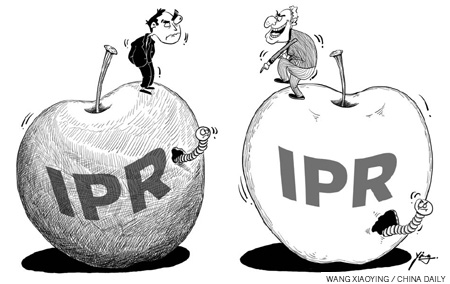Reflections on intellectual property

The protection of intellectual property rights (IPR) has been on the complaints list of foreign companies investing in China for a long time. But their recent criticism of the investment environment and fake products in China has prompted the Chinese government to take measures to further curb IPR infringements.
Technology innovation is an engine for industrial development. An IPR holder can recoup its research cost through the sale of its IPR products, and with legal protection will have exclusive possession of the IPR product market.
Over the years, China has made great efforts and achieved considerable progress in improving the legal environment for IPR protection.
An example of China's progress is the Patent Law of 1985, which has been amended three times in line with international IPR rules. The amendments have made the requirements for patent applications stricter, granted patents better protection and increased penalties for patent violations.
According to the law, companies and people can be penalized for displaying fake products in shop windows or trade shows. This to a large extent has alleviated the concerns of foreigners who exhibit their patented products in China.
However, China's progress on IPR does not necessarily mean it has managed the IPR legal environment well. The government's recent decision to implement a six-month IPR protection action through cooperation among several ministries shows China's political will to solve the problem.
But at the same time, it also shows the relative inefficiency of the present legal framework.
 0
0 






